Can surgical intervention improve pressure injury healing rates?
Six-month healing rates with traditional wound care are 45% for stage III & 31% for stage IV.28
The challenges of managing late-stage pressure injuries:
Contamination & chronic inflammation
Significant tissue loss
Compromised healing and complex patients
Why is Myriad an optimal ECM graft for late-stage pressure injuries (PIs)?
- Can help fill surgical dead space and reduce the risk of a seroma or hematoma formation2-3,5,11
- Modulates wound proteases to counter inflammation12
- Tolerates bacterial contamination1-5,11
- Can be used as a single application to assist with cost savings1-3
Volumetric tissue infill of a chronic PI
Healing via traditional wound care can be a slow process, and may not be realistic in some cases due to the involvement of deeper tissues and exposed structures.
Read this case study of a paraplegic patient with an extensive 6-month-old PI.
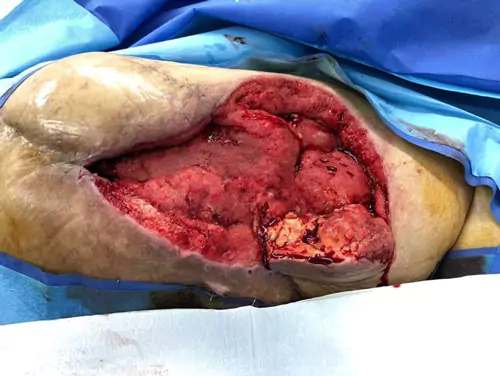
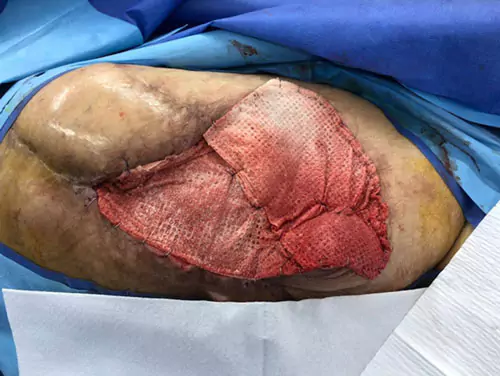
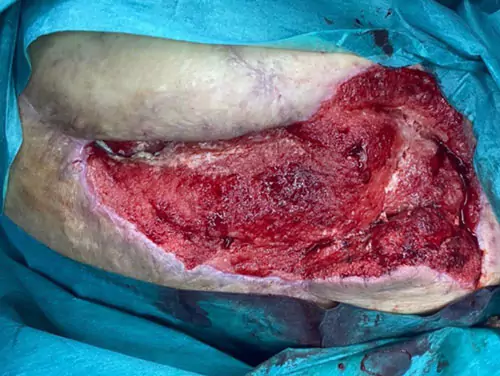
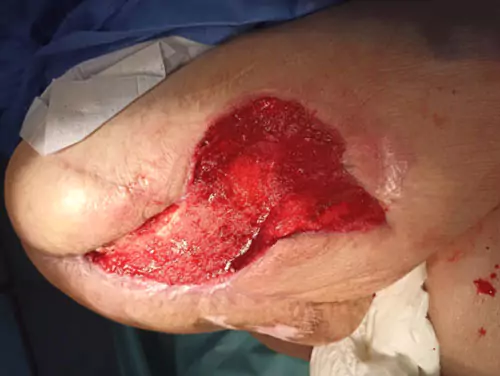
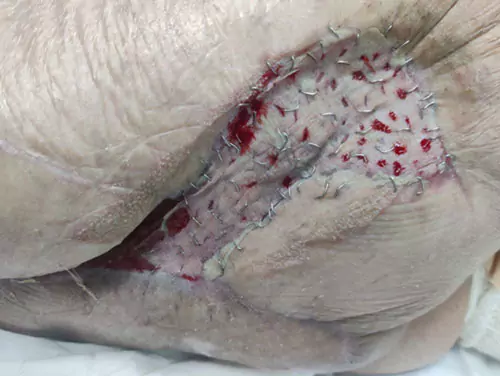
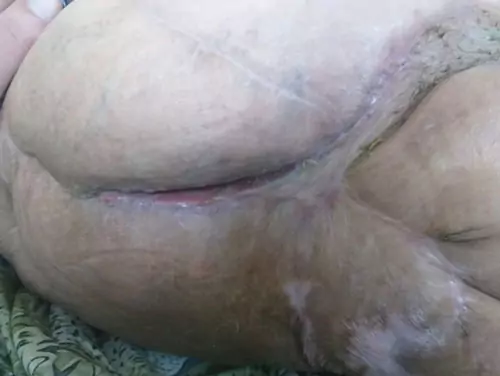
Algorithm helps guide approach to PI surgical reconstruction
The published algorithm aims to reduce complications and improve outcomes with recommendations for adjunctive therapies including NPWT and use of Myriad as the bioscaffold of choice.
Surgical Reconstruction of Stage 3 and 4 Pressure Injuries: A Literature Review and Proposed Algorithm from an Interprofessional Working Group
- Adv Skin Wound Care. 2023;36(5):249-258.
- Awad SS, Stern JD, Milne CT, Dowling SG, Sotomayor R , Ayello EA, Aguirre LJF, Khalaf BZ, Gould LJ, Desvigne MN, Chaffin AE
Watch our recent webinar on demand
Learn more about the publication of an algorithmic approach to surgical reconstruction of PIs with case study examples.
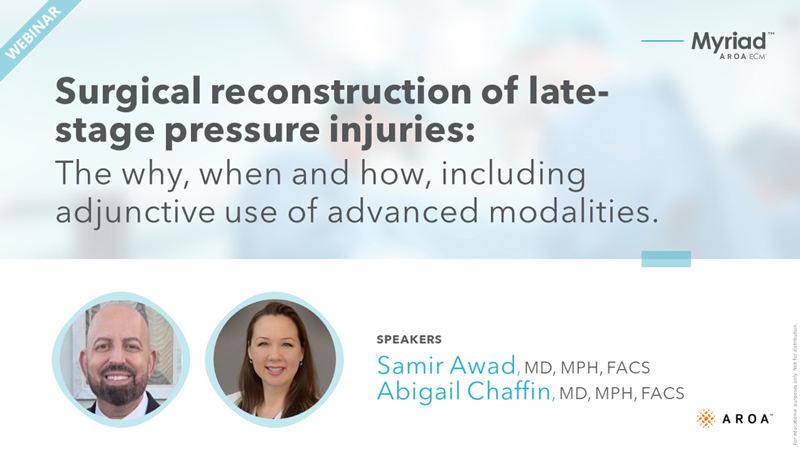
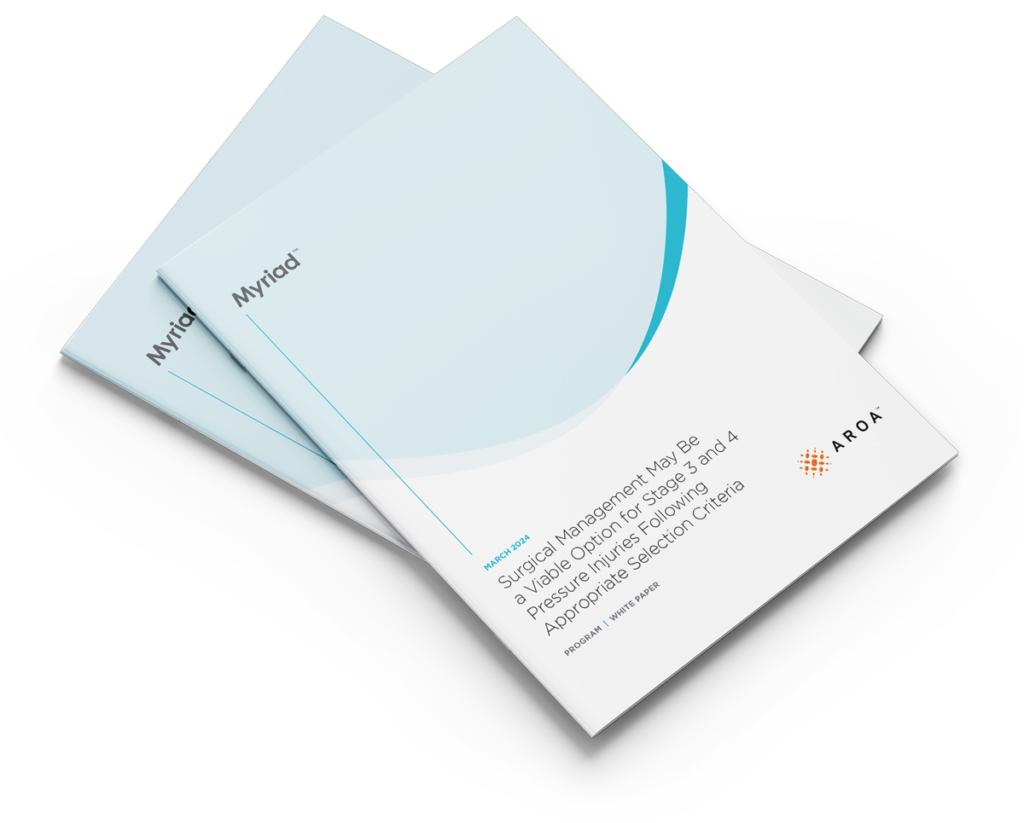
White paper now available
Surgical management of stage 3 and 4 PIs: A standardized approach
This resource discusses the challenges of managing late-stage PIs, and summarizes a recently published algorithm which standardizes the approach to surgical management.
Pressure Injury case studies
Initial Defect
Flap Advancement and Closure
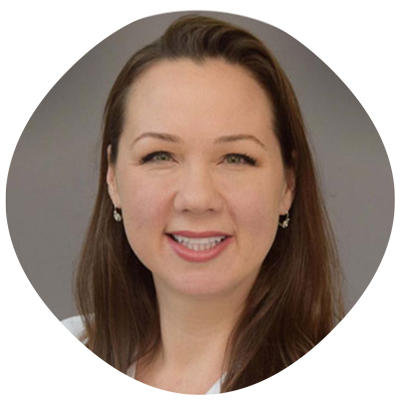
Abigail E. Chaffin, MD, FACS, CWSP, MAPWCA
CC.0207
Pre-operative Assessment
Day 36
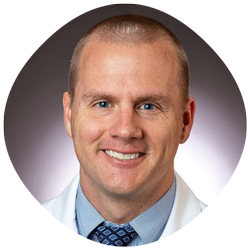
Michael Cormican, MD
CC.0167
Pre-operative
Week 9

Bariqa Salah M.D. and Heba Daradka
CC.0051